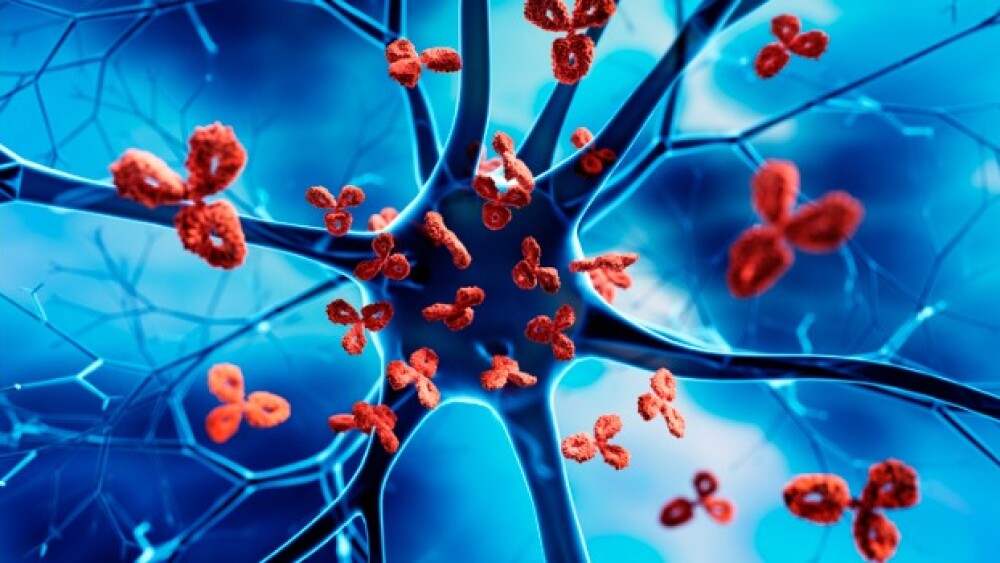A CAR-T cell therapy for autoimmune diseases generated significant attention at the 2023 American Society of Hematology (ASH) annual meeting and Arcellx and Seagen posted promising data.
Pictured: 3D autoimmune disease illustration/iStock, peterschreiber.media
While the 2023 American Society of Hematology (ASH) annual meeting will be marked by the approval of the first two gene therapies for sickle cell disease, an early-stage study looking at CAR-T cell therapy for autoimmune disease presented Saturday generated excitement.
Elsewhere, Seagen’s Adcetris plus Bristol Myers’ Squibb’s Opdivo showed progression-free success in advanced Hodgkin lymphoma and Arcellx’s CAR-T treatment appears ready to take on the competition.
Here are the highlights.
CAR-T Breaks Through in Autoimmune Diseases
While initial CAR-T cell therapies have focused on blood cancers and blood diseases like sickle cell, a shift is occurring to include other indications. A team of researchers from the University Hospital Erlangen in Germany began a study in 2021 to test a CAR-T therapy in patients with systemic lupus erythematosus (SLE), systemic sclerosis (SSc) or idiopathic inflammatory myositis (IIM) and provided an update at ASH.
Fifteen patients received a single infusion of CD19 CAR T cells after stopping all immunomodulatory drugs. These patients had previously failed to see disease control on a median of five treatments.
After treatment with the CAR T therapy, every patient experienced significant disease response. All eight SLE patients reached complete remission after three months and have maintained a zero score on the disease activity index. The three IIM patients saw “major improvement and normalization of [creatine kinase] levels,” according to the study authors. Of the four SSc patients, three patients who were followed for more than three months showed decreased disease activity.
The targeted CD19 CAR-T cells produced drug-free remission in all three types of autoimmune disease, leading the authors to write that a “hypothetical cure for these diseases appears possible.”
Overall safety of the therapy was considered “very favorable” with grade 1 cytokine release syndrome in 10 patients and grade 2 in only one patient. The other four instances were grade 0. One patient had vertigo two weeks after infusion and no prolonged bone marrow suppression occurred.
According to the paper, an investigator-initiated trial assessing efficacy and safety of the CAR-T treatment is currently underway.
Arcellx Posts Data for Multiple Myeloma Challenger
At ASH Monday, Arcellx gave a peek at its Phase I CAR-T data for multiple myeloma. In the 38 evaluable patients, 100% experienced an overall response rate on anito-cel, with 76% seeing a complete response. Median progression-free survival measures had not yet been reached, but researchers predict a 56% PFS rate after two years using the Kaplan-Meier statistical method.
The program is partnered with Gilead and Kite Therapeutics and is expected to give J&J and Legend Biotech’s Carvykti and Bristol Myers Squibb’s Abecma a run for its money, according to Endpoints News. These already-approved therapies have experienced manufacturing delays. Arcellx CEO Rami Elghandour told Endpoints that Kite’s manufacturing capabilities could give anito-cel an edge.
Seagen Touts Data for Adcetris Plus Opdivo in cHL
Combining Seagen’s marketed antibody-drug conjugate Adcetris with BMS’ PD-1 inhibitor Opdivo plus chemo is showing potential in treating classical Hodgkin lymphoma (cHL). In a Phase II trial of patients with early-stage cHL, 88% of patients treated with the combo remained progression-free after 24 months. The investigational regimen eliminates two chemo agents used commonly for cHL—vinblastine and bleomycin.
“Hodgkin lymphoma commonly strikes young adults, and our goal is to achieve the highest cure rate possible while reducing treatment and toxicity burden,” said Jeremy Abramson, director of the Jon and Jo Ann Hagler Center for Lymphoma at Massachusetts General Hospital and a principal investigator on the trial, in a prepared statement.
Kate Goodwin is a freelance life science writer based in Des Moines, Iowa. She can be reached at kate.goodwin@biospace.com and on LinkedIn.






